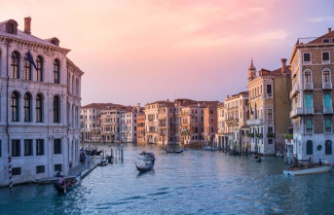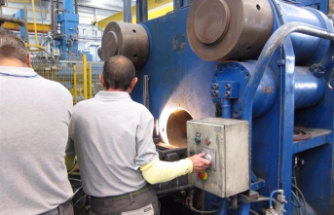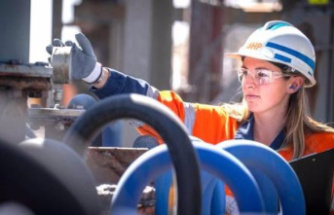Obamacare isn't the only major health reform on the chopping block under President Donald Trump. So are the environmental policies that keep our air and water safe.
The Clean Power Plan to limit the smog and soot flowing into New Jersey from other states, the Paris climate pact to help contain global warming, the hard-fought settlement with polluting companies to clean up the Passaic River -- all could become casualties of Trump.
As the environmental chief for our region under President Barack Obama, Judith Enck clashed with a Republican governor bent on weakening air and water protections, and championed the fight against climate change.
The longest-serving Environmental Protection Agency administrator for Region 2 -- including New Jersey, New York, Puerto Rico, the U.S. Virgin Islands and eight Indian nations in New York -- Enck talked recently to Julie O'Connor of The Star-Ledger editorial board about that legacy, and how it could be ripped up.
EPA administrator Judith Enck, announcing a major clean-up of the Passaic River in 2014. (Frances Micklow | The Star-Ledger)Let's start with one of EPA's biggest wins in New Jersey. Could the Passaic River settlement be clawed back?
Yes. Anything can change. It's hard to claw back something when it's gotten this far in the process, but I fully expect that the polluters will try. Quite honestly, I am a little worried about it. Their alternative doesn't even come close to getting the river cleaned up to the point that it needs to be.
What else might be rolled back?
We know they're not going to proceed with the Clean Power Plan, which is EPA's signature work on climate change. This is the first national regulation that would require reductions in carbon pollution from fossil fuel power plants.
The state of New Jersey was opposed to the plan, which was disappointing. As we know from Hurricane Sandy, New Jersey is directly impacted by climate change. The warmer ocean temperatures that October made Sandy much more intense than it would have been.
I was surprised that after enduring the horrific impact of that storm, New Jersey would not support the Clean Power Plan. But we know the new Trump administration has said they're not going to proceed with it.
So coastal states like New Jersey will remain particularly vulnerable to the impact of climate change, both with more violent weather and sea-level rise. That could have severe long-term implications.
What did the EPA do under your tenure to stand up to Christie on clean air and water protections?
We publicly opposed some of the regulatory changes to the flood protection rules, because we liked the idea of buffers around shorelines and wanted to keep that in place. We weighed in on some of the water-quality rule changes. And we did a huge amount of work on combined sewer-overflow issues.
Whenever it rains hard, sewage gets mixed in with rainwater and gets discharged into our treasured water bodies as raw sewage, with no treatment at all. New Jersey went from general permits to individual permits, which will drive down the quantity of sewage that will be discharged into rivers, lakes and streams.
This is an issue that lingered literally for decades. I took it on in a big way in the beginning of my tenure. I pushed the state of New Jersey on it, and I give them credit for agreeing that this is a serious issue.
But we still have a long way to go. There needs to be investment in water infrastructure. What surprised me was the amount of time I had to spend dealing with sewage issues. I thought that was done in the '80s, but because cities don't have the means to invest in wastewater infrastructure, this continues to be a serious problem.
Gov. Chris Christie called the EPA's Clean Power Plan a "heavy-handed overreach." What was it like engaging with a Republican governor who was clashing with your boss?
I was able to compartmentalize. There were issues we really disagreed on, and those we could work together on. You don't have to love each other. You just have to work hard to make sure the environment is protected. On some issues, like the Passaic River, we worked beautifully together. On other issues, like climate change, not so much. It varied.
Trump picks fossil fuel industry flunky as environmental chief | Editorial
What's the next big issue for New Jersey?
Something unique to New Jersey is the large number of federal Superfund sites. New Jersey has the most in the country: 114 active sites right now. Some are high-profile, like the Passaic River. Some are not. Some are dry-cleaner sites you'll never hear of.
New Jersey and EPA have to work hard to get that toxic legacy addressed. People should know that if they're concerned about a water body or land in their community, they can petition the EPA and ask us to take a close look at whether this qualifies as a Superfund site.
We've done testing at the Hackensack River and we know that there are very high levels of mercury. We looked closely at that petition, and are in the process of trying to determine whether or not this will be added to federal Superfund.
If that were going to happen, it would happen this year, 2017. The cleanup's not going to be done, but the first step is getting it on the federal Superfund list.
Any reason to believe it might not be added under Trump?
That is a concern. And will there be enough money in the Superfund program to allow sites like this to be added? I think it will be harder to get new sites on. Superfund is running on fumes. There's not a lot of money. And will there be enough funding for EPA staff to oversee the cleanup work?
Superfund is like a public works program. It creates jobs, it's very local. It's good for the local economy. Just look at all these contaminated sites. You clean them up and then they're available for economic development.
Philosophically, it doesn't make sense not to propose them on the list and to fully fund the process of getting them cleaned up, including EPA staff to oversee the cleanup. Even if polluters are paying, you need EPA staff to make sure it's done right. That's really important.
Trump's war on the environment must be fought locally | Editorial
Other things to keep an eye on?
What is the EPA budget going to look like going forward? Will we have the same number of staff? Will there be a reduction in our staff? Will they target our enforcement staff? I don't think we're going to see the Congress repealing Clean Air Act or Superfund statute. But you can really gut an agency by reducing its budget and its staff.
What do you see as your legacy on climate change in this region?
I don't even want to count the number of speeches I did explaining the Clean Power Plan. During my tenure, I did a total of 252 public speeches. A lot of them were on that issue. We did public education on climate change, but the real heavy lifting -- the regulatory work -- came out of EPA in Washington.
Another issue that illustrates the importance of a strong EPA: The bald eagle population in New Jersey is increasing. It wasn't that long ago that the pesticide DDT was wiping it out. In 1972, EPA banned the use of DDT. Since then, the population of the bald eagle -- our nation's symbol -- has bounced back. In 2007, it was taken off the federal endangered species list.
We have bald eagles coming back at a record pace in New Jersey, and that never would have happened if not for the EPA.
How engaged will you be in trying to defend this legacy?
Very. I'm going to be a visiting scholar at the Elisabeth Haub School of Law, part of Pace University in the Hudson Valley. I'll be working with law students and professors on environmental policy. I'll also do some writing and public speaking and will continue to be a voice for environmental protection in the region, including helping to support a new generation of law students who will soon become environmental lawyers.
I want to instill in them the importance of following the law: making sure, in particular, that low-income communities have clean air and clean water just like other communities. Unfortunately, we still have tremendous disparity. Low-income communities don't have the same environmental protections. I want to zero in on environmental justice.
Any advice for the Trump administration?
I think the best thing is for them to get briefed by scientists. If they objectively listen to the science, they will understand how serious a threat climate change is.
I often cite a peer-reviewed scientific paper in which the author surveyed about 13,000 scientists, and asked them, "Do you believe that climate change is real and is primarily caused by human activities, such as burning fossil fuels and burning forests?"
Ninety-seven percent of the scientists said yes. What we need the Trump administration to do is listen to the science. The leadership, including the president himself, should randomly call up any credible scientist and have a conversation about climate change.
Bookmark NJ.com/Opinion. Follow on Twitter @NJ_Opinion and find NJ.com Opinion on Facebook.
Our editors found this article on this site using Google and regenerated it for our readers.













